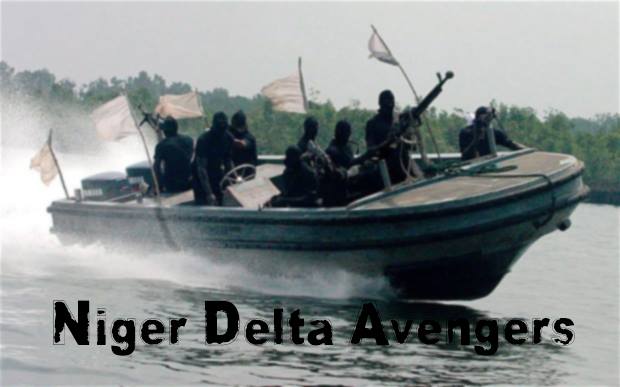Nigerian officials on Tuesday said the government has clinched a deal for a 30-day truce with Niger Delta militants, though a Twitter account for the most prominent armed group later denied it had agreed to stop attacking oil facilities.
The confusion came as government officials said they were holding talks with the militants to bring a halt to a devastating series of operations targeting Nigerian oil operations that have dealt damaging blows to the country’s petroleum production. The talks included the Delta Avengers, a group that has led the attacks, aides to Nigerian oil minister Ibe Emmanuel Kachikwu said.
Government officials said a cease-fire had been reached that included the Avengers, though that group denied reaching a truce, including through a post on the group’s Twitter site on Tuesday. A Nigerian government official said the person who runs the Avengers Twitter account doesn’t necessarily speak for the group.
The Avengers and other Niger Delta militants didn’t respond to requests for comment.
The attacks had hit oil pipelines across Nigeria controlled by big oil companies such as Italy’s Eni SpA, Royal Dutch Shell PLC and Chevron Corp., toppling the country’s position as Africa’s number No. 1 oil producer.
According to the International Energy Agency, Nigeria’s output was down by 500,000 barrels a day, to 1.37 million barrels a day in May, compared with January before attacks escalated. A spokesman for state-owned Nigerian National Oil Corp. couldn’t immediately comment.
The oil outages have helped a rebound in oil prices to above $50 a barrel—a level not seen since October 2015. Oil prices were down on Tuesday, with Brent crude, the international benchmark, falling 1.8% to $49.75 in London trading, but there were several factors, including investor worries about Thursday’s U.K. vote on whether to leave the European Union.
The last attack by the militant group took place on June 16. The Avengers and other groups have said they are protesting against the Nigerian government, which they say is stealing natural resources in the Niger Delta region.
The militants had previously said they wouldn’t consider a peace deal without international mediators and had vowed, at one stage, to sink Nigerian production to zero.
The attacks occurred as Nigeria grapples with oil prices that crashed to $27 a barrel in January, the lowest levels in 13 years. The country has been forced to massively tap into its foreign reserves. On Monday, Nigeria’s naira currency plummeted more than 40% against the dollar after the central bank ended its dollar peg.

